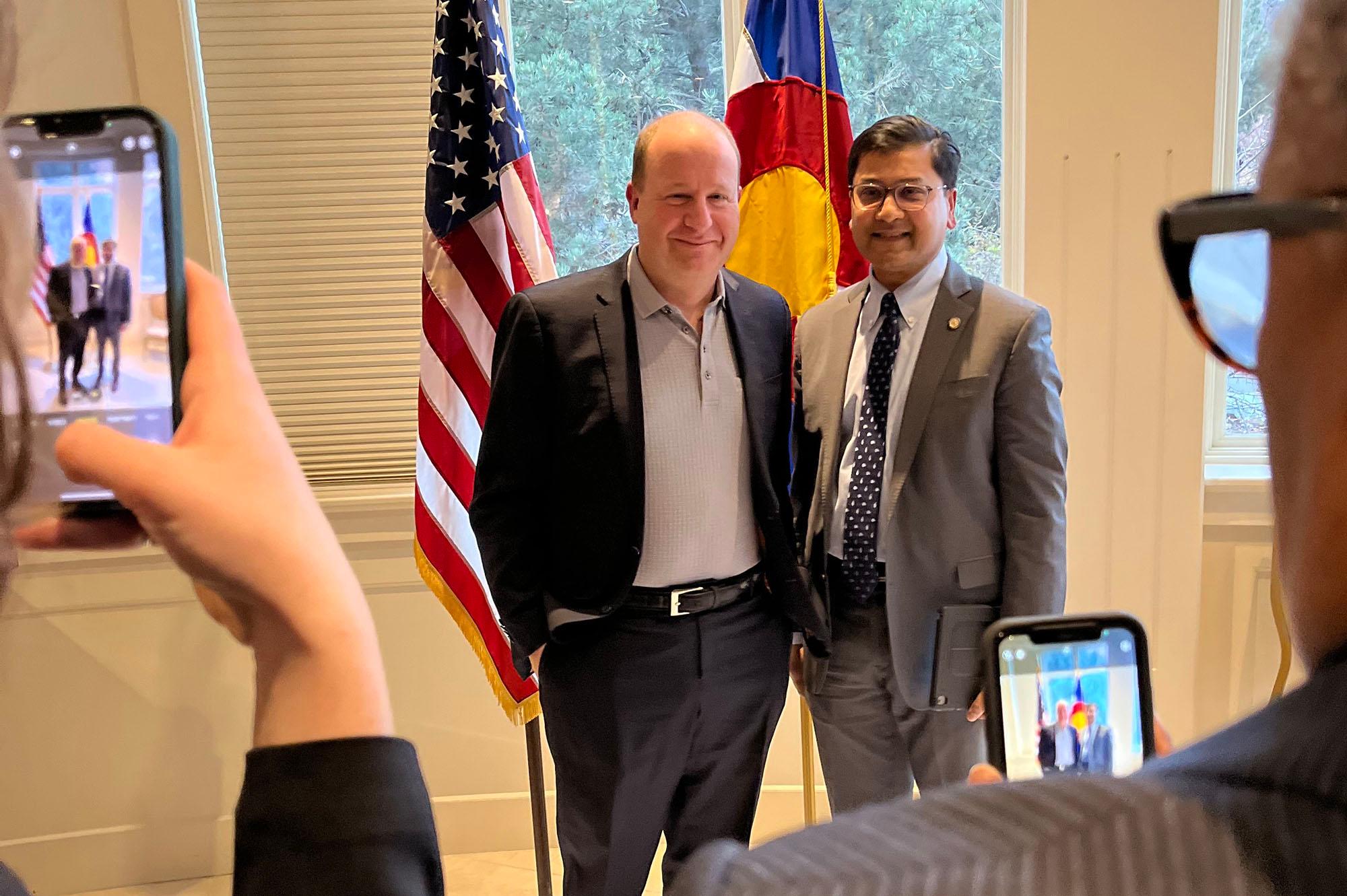
Colorado’s pro-rail state leaders and its growing population could make it a prime target for big federal rail grants, a top government transportation official said Monday.
Federal rail officials last week said they would give the Front Range Passenger Rail District, which is planning a Pueblo-to-Fort Collins rail line, a $500,000 planning grant. State officials said the announcement was a good sign that the federal government had faith in the project and might someday send many more dollars to Colorado from the 2021 Bipartisan Infrastructure Law.
Amit Bose, administrator of the Federal Railroad Administration, confirmed that belief on Monday in Denver.
“Colorado is well positioned to take advantage,” Bose said.
He appeared with Gov. Jared Polis and other state leaders at an hour-long discussion at the governor’s mansion centered around his administration’s passenger rail priorities that was attended by a coalition of supportive legislators, local leaders, advocacy groups, and representatives of other interests that have laid the groundwork for passenger rail in the last few years.
The federal government has noticed that work, Bose said, including years of planning that led to the creation of a special district to fund and further plan the Front Range rail line. Polis is pushing that district to prepare for a 2024 ballot funding measure.
The federal government also noticed the transit-oriented approach to housing the governor announced last week that Polis hopes will shape future expected growth.
“What's happening in Colorado is just such a good model,” Bose said, adding: “The effort that's already been demonstrated here couldn't be stronger.”
The federal rail agency announced last week that it had accepted about 70 projects from around the country into its Corridor Identification Program, which officials say is meant to create a “pipeline” that helps carry projects from ideas through planning to becoming federally funded reality.
Colorado’s Front Range rail project already has a leg-up in that program, Bose said, because of the years of planning that have already happened.
“You’re special,” Bose said of the Front Range rail project, which he added will skip a planning step in the federal rail authority’s process.
“And then when you move into step two there’s much more funding available,” he continued, “We’re talking millions of dollars to advance the project even more.”
Bose said his visit to Denver had been planned before last week’s announcement, but that he had scheduled it to emphasize “how important Colorado is in the national picture.”
“It’s not just about the coasts,” Bose said of the federal government’s rail investments. “It's also about the mountain states. It's also about a place like Colorado. We don't just want long distance trains with their sparse stops here in Colorado, whether it's the [California] Zephyr or the Southwest Chief to be the only service that Colorado has. We want to make sure that the passenger rail goes to the places where Coloradans are and want to go.”
Colorado transportation officials, with Polis’ support, are also beginning planning efforts for a new passenger train from Denver to Steamboat Springs and Craig. They hope that project will also land big federal dollars.
They also said it’s vital to keep planning work moving forward. Because while there are historic sums of money in the federal infrastructure bill, it is limited.
“The fact that we have a federal administration that's committed to helping us dream up and execute a project like this is not an opportunity that we can take for granted,” said Colorado Department of Transportation Executive Director Shoshana Lew. “I think it shows us what kind of a moment we have.”
Related coverage
- After failed land use bill, Gov. Polis aims to link climate, housing and transit — and tie state funding to RTD overhaul
- Feds accept Colorado’s Front Range rail project into key grant program
- Free rides reduced driving, RTD report says. But quest to reduce transportation pollution faces a long road
- CDOT says Denver-to-Steamboat train could be years, not decades, away









